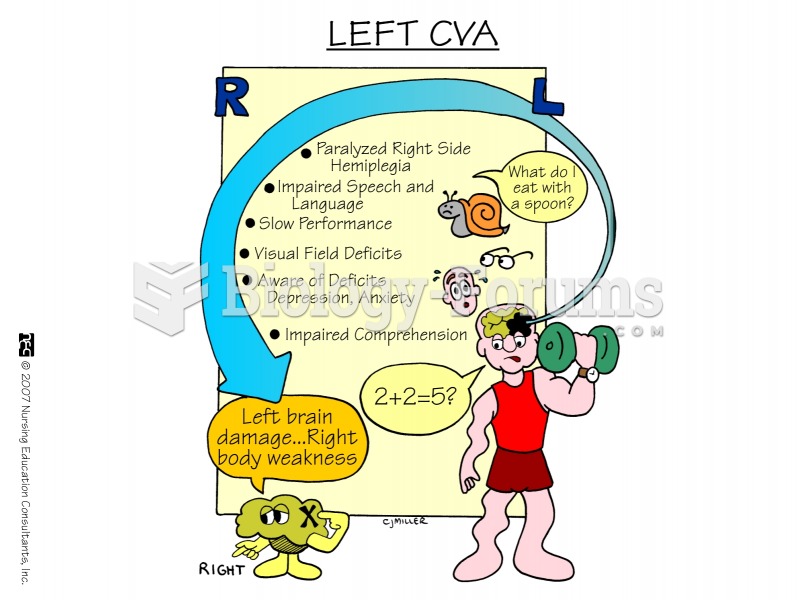|
|
|
The average office desk has 400 times more bacteria on it than a toilet.
According to the FDA, adverse drug events harmed or killed approximately 1,200,000 people in the United States in the year 2015.
For pediatric patients, intravenous fluids are the most commonly cited products involved in medication errors that are reported to the USP.
The first documented use of surgical anesthesia in the United States was in Connecticut in 1844.
Hypertension is a silent killer because it is deadly and has no significant early symptoms. The danger from hypertension is the extra load on the heart, which can lead to hypertensive heart disease and kidney damage. This occurs without any major symptoms until the high blood pressure becomes extreme. Regular blood pressure checks are an important method of catching hypertension before it can kill you.







